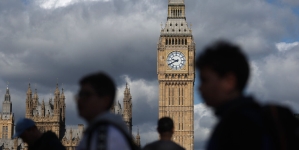Recent progressive movements have tended to be less strategic, explains deBoer, a self-described leftist. Occupy celebrated its lack of structure, including its lack of concrete goals. “Demands are disempowering since they require someone else to respond,” one Occupy protester told The New York Times in 2011. Black Lives Matter refused to name leaders, contrasting its approach with the old top-down civil rights movement. #MeToo, befitting its hashtag, never quite became an organized movement.
None of the three created a mass organization with a long-term plan — as labor unions, civil rights groups, evangelical Christians and other successful movements did in past decades.
Occupy and Black Lives Matter also allowed unpopular positions to shape their public image — and weaken them. For instance, polling shows that most Black Americans support major changes to policing but not less policing. Much of Black Lives Matter, however, focused on cutting police funding. One organizer wrote a Times Opinion article titled “Yes, We Mean Literally Abolish the Police.”
The recent movements have instead had more success changing elite institutions that tend to be filled by fellow liberals. The winners of prestigious cultural awards have become more diverse. Media organizations now capitalize Black when describing somebody’s race. President Biden has made Juneteenth a federal holiday. Universities emphasize identity in their curriculums.
Symbols over substance
These are real changes, but deBoer notes that they have little effect on most people’s lives. They instead reflect what the political philosopher Olúfẹ́mi Táíwò calls the “elite capture” of social justice campaigns. “Today,” deBoer writes, “left-activist spaces are dominated by the college-educated, many of whom grew up in affluence and have never worked a day at a physically or emotionally demanding job.” For that reason, these spaces prioritize “the immaterial and symbolic” over “the material and the concrete,” deBoer argues.































